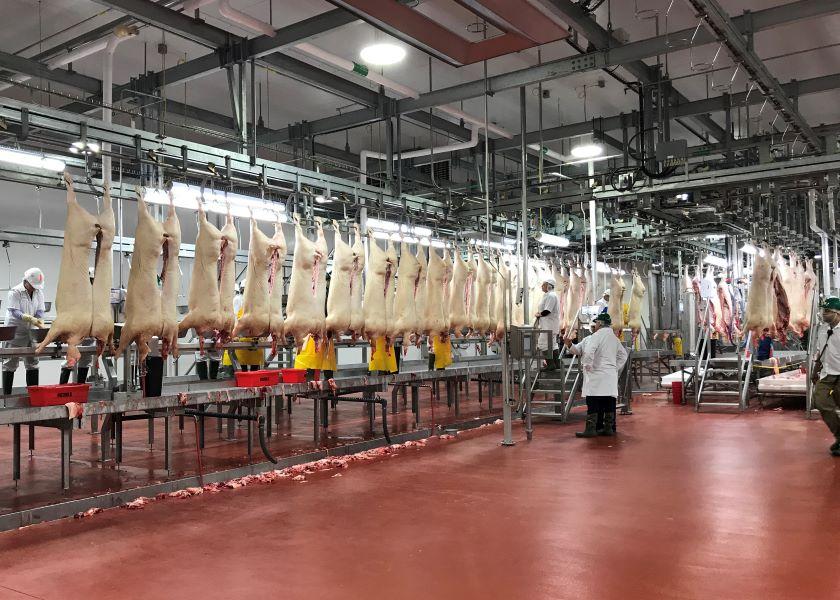U.S. to Allow Pork Plants to Operate Faster in One-Year Trial Program

The U.S. Department of Agriculture said on Wednesday that nine pork plants can apply to operate faster processing-line speeds under a one-year trial, after a federal judge in March struck down a Trump-era rule that removed line speed limits.
Faster slaughtering would help meat companies like WH Group's Smithfield Foods and JBS USA, a unit of Brazil's JBS SA, boost pork production at a time of strong demand and high bacon prices.
The companies, and others like Hormel Foods Corp supplier Quality Pork Processors, are eligible to apply for the trial program because they were previously able to accelerate processing under the earlier rule.
A federal judge invalidated the 2019 rule after the United Food and Commercial Workers (UFCW) Union sued the USDA over concerns about worker safety.
Some activists criticized USDA for starting a new waiver program.
"With this decision, the Biden administration is caving to industry pressure," said Zach Corrigan, senior attorney for Food & Water Watch.
But the UFCW, America's largest union for meatpacking workers, said the program will create a mechanism to collect data that shows how to protect workers and promote food safety.
In the pilot program, plants will implement worker safety measures under agreements with labor unions or worker safety committees, the USDA said.
Plants will collect data on how line speeds affect workers and share it with the U.S. Occupational Safety and Health Administration, the USDA said. The data could be used to make future rules for the industry.
Meat companies welcomed the program as an "opportunity to restore lost production and help ease supply chain challenges but will need to examine further the specific requirements for participation," said the North American Meat Institute, an industry group representing major meatpackers.
Pork companies lost 2.5% of their slaughtering capacity following the March court decision, the National Pork Producers Council said.
Futures traders said the pilot program announcement boosted Chicago Mercantile Exchange lean hog futures amid concerns that slower processing speeds had reduced meatpackers' demand for pigs to slaughter. December lean hogs ended up 0.750 cent at 75.700 cents per pound on Wednesday.
(Reporting by Tom Polansek; Editing by Nick Macfie)
More from Farm Journal's PORK:
The Reality of Slower Line Speeds
Line Speed Ruling: It’s Time to Stick to the Science
Who Will Pay the Cost of Reduced Line Speeds in Pork Plants?







